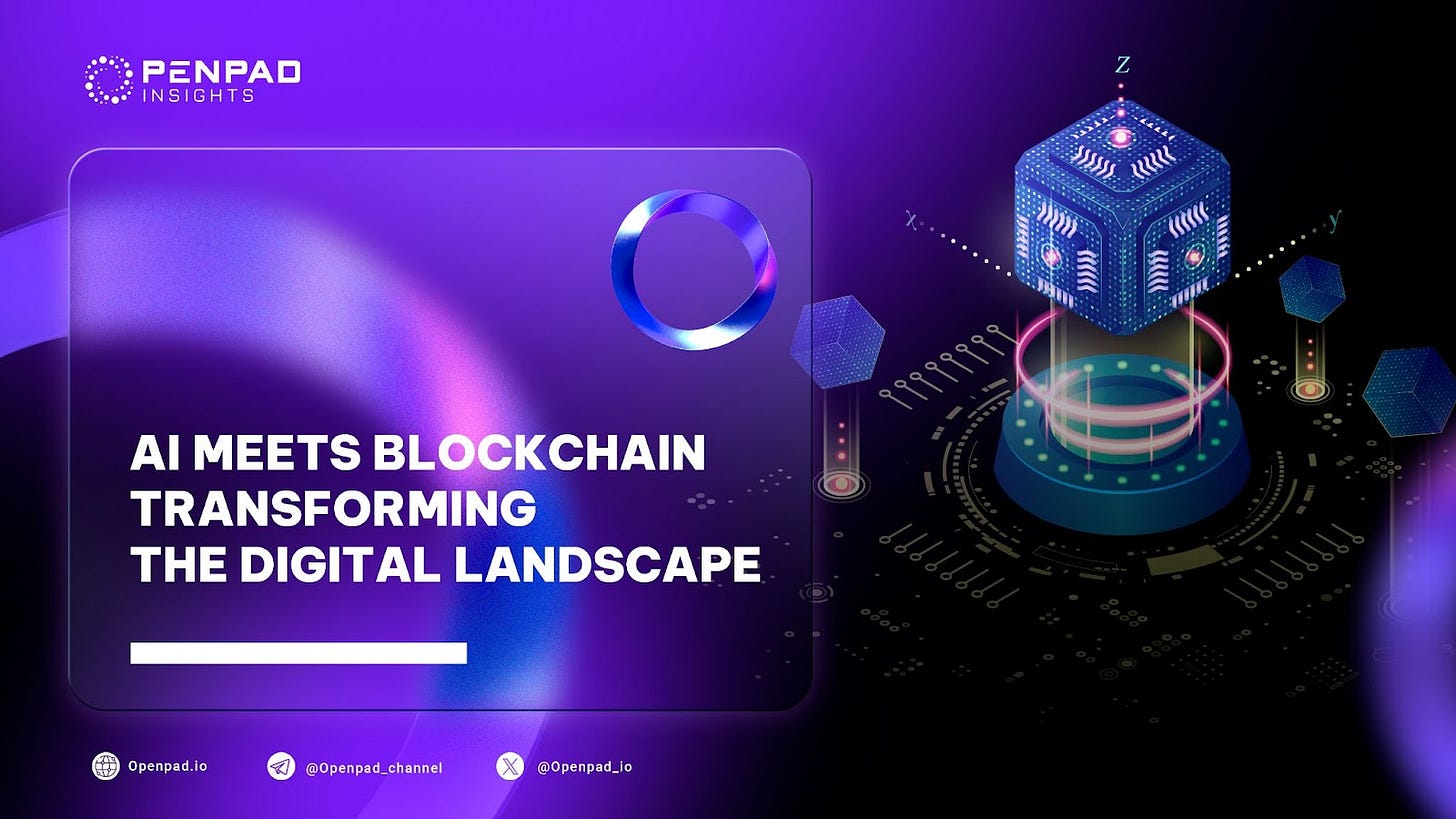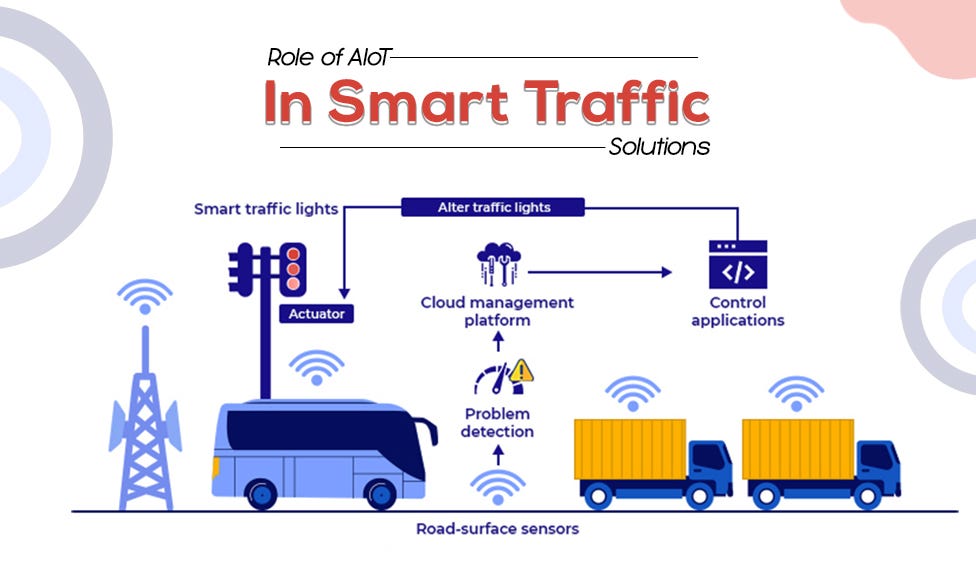AI Meets Blockchain: Transforming the Digital Landscape
In this blog, we’ll explore how these two technologies complement each other, the challenges they face, and the exciting applications emerging from their synergy.
In today’s digital age, both Artificial Intelligence (AI) and Blockchain are at the forefront of technological advancements. Individually, they have already made significant impacts across industries, but together, they hold the power to transform the digital landscape. In this blog, we’ll explore how these two technologies complement each other, the challenges they face, and the exciting applications emerging from their synergy.
The Synergy Between AI and Blockchain
AI and Blockchain, though powerful on their own, become even more potent when combined. Their synergy opens up new possibilities for innovation, offering unique solutions to problems that neither technology could tackle alone. Let's take a closer look at how AI and Blockchain work together to create a more secure, efficient, and transparent digital ecosystem.
Complementary Strengths: AI and Blockchain complement each other perfectly. AI's data analysis and predictive capabilities enhance Blockchain's secure and decentralized transaction system.
Decentralized AI: Blockchain enables the decentralization of AI models, ensuring that machine learning processes can be more secure and transparent.
Data Integrity for AI: By securing data on a Blockchain, AI systems can rely on tamper-proof data, which boosts the accuracy and trustworthiness of their decisions.
The combination of AI and Blockchain is not just theoretical—it's a practical powerhouse driving change in industries worldwide. Their integration enhances the strengths of each, providing a foundation for innovation that is both transparent and reliable.
Challenges and Limitations
While the integration of AI and Blockchain offers immense promise, it is not without its challenges. The complexities of combining these technologies, as well as inherent limitations, must be addressed for this synergy to reach its full potential. In this section, we’ll explore some of the key hurdles in the AI-Blockchain partnership.
Scalability Issues: Both AI and Blockchain face scalability challenges. Blockchain's decentralized nature can slow down AI systems that require rapid, large-scale data processing.
High Computational Power: The resource demands of AI and Blockchain are considerable. AI's need for heavy computational power, combined with the energy consumption of Blockchain's consensus mechanisms, creates significant integration challenges.
Privacy Concerns: Blockchain's transparency can clash with AI's need for private data, especially in sensitive fields like healthcare.
Regulatory and Ethical Concerns: The lack of clear regulatory frameworks for integrating AI and Blockchain poses risks. Ethical concerns about AI decision-making and the disruptive nature of Blockchain must also be addressed.
Despite these challenges, the potential rewards of integrating AI and Blockchain far outweigh the obstacles. As the technologies mature, solutions will emerge that address scalability, privacy, and ethical concerns, paving the way for broader adoption and innovation.
AI and Blockchain are Transforming the Digital Landscape
The combination of AI and Blockchain is already making significant strides in various industries. Their integration is not just a theoretical concept - it is actively reshaping how businesses operate, how consumers interact with digital systems, and how data is secured. Let’s explore how AI and Blockchain are transforming the digital landscape with real-world use cases that illustrate their profound impact.
Finance and Cryptocurrency: In the financial sector, AI is being used for advanced market analysis, fraud detection, and automated trading strategies. Blockchain provides the infrastructure for secure, decentralized transactions. This combination improves the transparency and security of financial markets, allowing for faster, more efficient, and more trustworthy transactions.
Example: Many cryptocurrency exchanges and decentralized finance (DeFi) platforms now utilize AI for predictive analysis while leveraging Blockchain for transaction validation, creating a more secure and streamlined experience for users.
Supply Chain Management: Blockchain is already being used to track products from origin to consumer, ensuring transparency, reducing fraud, and improving operational efficiency. AI plays a crucial role in optimizing supply chains by predicting demand, monitoring production processes, and automating inventory management.
Example: Companies like IBM and Maersk are using Blockchain-based platforms (e.g., TradeLens) combined with AI to track shipments in real-time, reduce costs, and ensure supply chain integrity.
Healthcare: AI is revolutionizing the healthcare industry by analyzing patient data for personalized treatment plans, predictive diagnoses, and drug discovery. Blockchain secures patient records, allowing for secure and transparent sharing of medical data.
Example: The MedRec project uses Blockchain to store electronic health records while AI analyzes patient data to provide personalized recommendations, enhancing both privacy and healthcare outcomes.
Gaming and NFTs: The gaming industry has seen an explosion of AI-powered experiences, from intelligent non-playable characters (NPCs) to personalized content. Meanwhile, Blockchain has enabled the creation of Non-Fungible Tokens (NFTs), which provide verifiable ownership of in-game assets.
Example: Decentraland and Axie Infinity use AI to personalize gaming experiences, while Blockchain enables secure ownership and exchange of digital assets within these virtual worlds.
Smart Cities and IoT: AI and Blockchain are also coming together to build smarter cities. AI analyzes vast amounts of data from Internet of Things (IoT) devices to optimize traffic, energy usage, and public services, while Blockchain ensures the security and integrity of the data collected.
Example: The City of South Korea's Songdo is integrating Blockchain and AI for smart traffic management and waste disposal, providing a prototype for smart cities globally.
AI and Blockchain are already driving transformative changes across a variety of industries. By improving security, transparency, and efficiency, these technologies are shaping the future of finance, healthcare, gaming, and many more sectors. As adoption grows and more use cases emerge, AI and Blockchain will continue to revolutionize the digital landscape, providing innovative solutions to complex challenges.
The convergence of AI and Blockchain holds the potential to revolutionize industries and redefine digital interactions. While challenges remain, their combined power promises to address critical issues around transparency, security, and scalability. As these technologies continue to evolve, businesses that embrace AI and Blockchain will be at the forefront of digital innovation, transforming how we live, work, and engage with the world around us.










